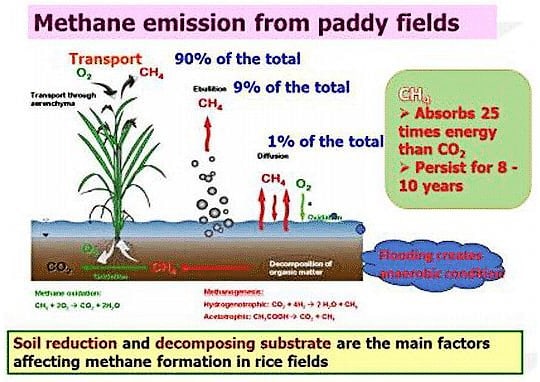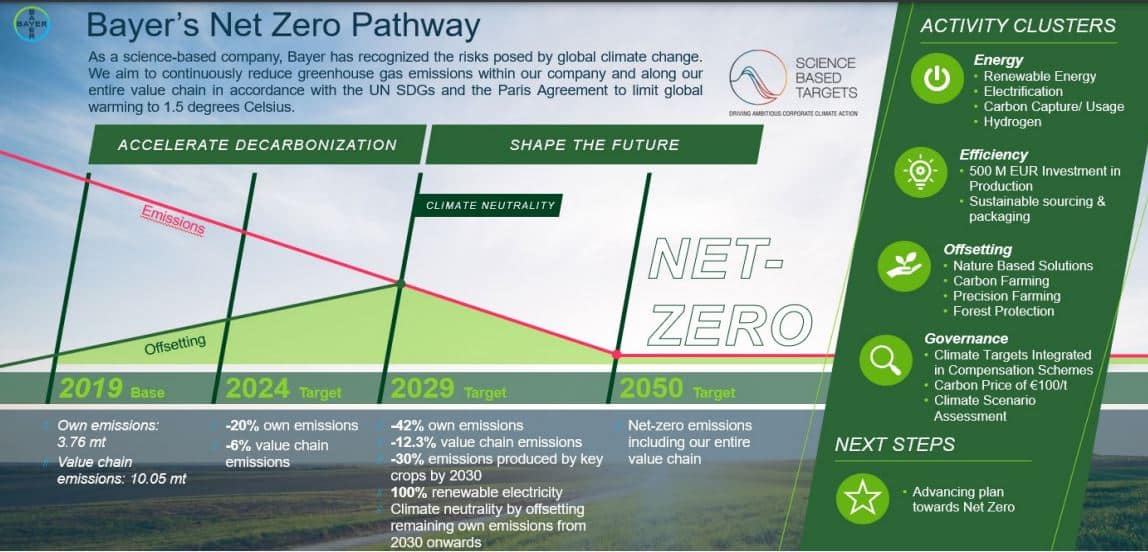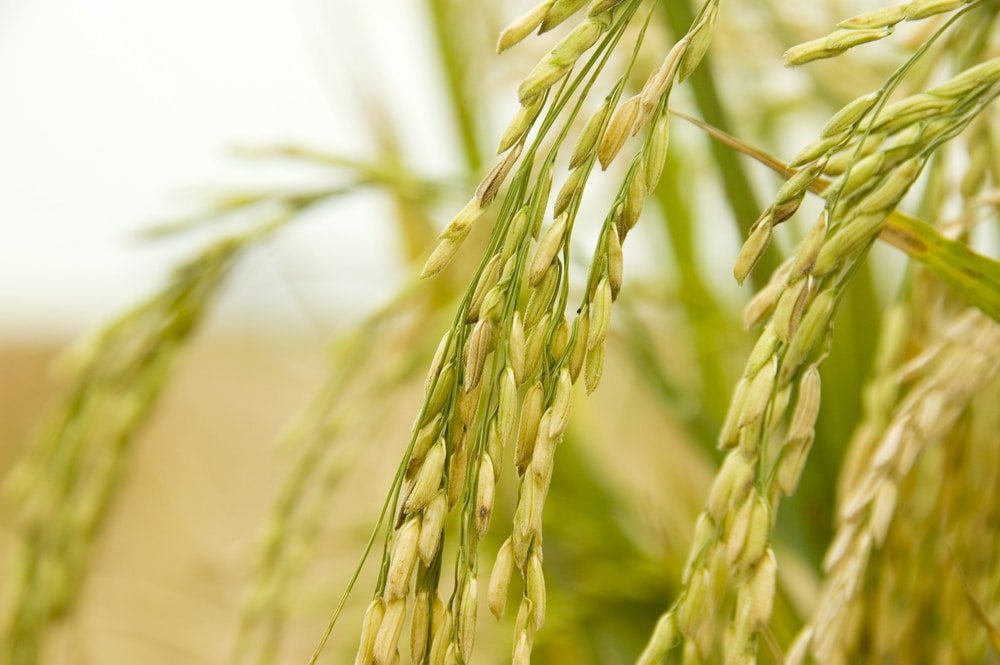Bayer, Temasek-owned investment company GenZero, and Shell Energy unite to revolutionize paddy rice cultivation in India by coming up with a reliable model to reduce methane emissions and advancing sustainable farming practices.
Their collaboration will involve support and training for farmers while using Measurement, Reporting & Verification (MRV) tools and remote sensing technology. Their project also includes the support of the renowned scientific institution, the International Rice Research Institute.
Paddy Rice Cultivation Emissions
Global rice production will grow to meet the increasing demand from a 34% rise in the world population by 2050. This projected increase in production translates to more other greenhouse gas emissions.
Agriculture is the second largest emitting sector responsible for about 24% of global GHG emissions. The sector contributes between 10-12% of the global anthropogenic (man-made activities) GHG emissions.
Of global agricultural GHG released by rice fields, about 30% and 11% are from methane (CH4) and nitrous oxide (N2O), respectively. Paddy rice cultivation, in particular, represents about 10% of global methane emissions.
Methane is a more potent GHG with a global warming potential of more than 25x that of carbon dioxide. The image below from a study shows how methane is emitted from paddy rice fields.

Rice farms take up over 150 million hectares of land worldwide, occupying 15% of the global farmland.
For successful climate-smart rice cultivation, there must be changes in rice management practices to decrease their planet-warming emissions. A robust and scalable approach is needed to encourage methane emissions reductions in paddy rice cultivation.
Bayer and its partners aim to achieve significant results in decarbonizing rice production, helping enhance soil health while benefiting small farmers. Their project focuses on rice cultivation in India, the second-largest producer of rice globally.
Bayer Climate Strategy for Net Zero
Being the global leader in the agriculture sector under its Crop Science division, Bayer seeks to improve rice management practices by promoting climate-smart activities that economically and environmentally benefit both the farmers and the planet.
For the past 2 years, the company has performed the groundwork needed for the project under its “Sustainable Rice Project” in India. It particularly aims to fight climate change by promoting carbon reductions in growing rice.
The project encourages rice farmers to adopt new techniques such as Direct Seeded Rice (DSR) and Alternate Wetting & Drying (AWD). DSR is a practice that doesn’t involve transplanting operations and AWD which involves controlled and intermittent flooding.
Both modern farming practices help reduce the amount of GHG released by rice cultivation while allowing farmers to earn more from their reduced GHG emissions through carbon credits. Each credit represents a tonne of reduced carbon emissions. In voluntary carbon markets, carbon credits are also called carbon offsets.
Since 2020, Bayer has been rewarding farmers with carbon credits by adopting climate-smart (carbon farming) practices, giving them more revenue. Its Carbon Initiative enables Bayer to develop a science-based and collaborative approach to bringing the carbon market to agriculture.
All these efforts in working closely with the farmers are part of the company’s sustainability commitments and net zero targets. They particularly aimed at reducing in-field GHG emissions (per kilogram of crop yield) by 30% in 2030.
Bayer Net Zero Pathway

The company plans to offset any remaining emissions after reduction by purchasing carbon credits specifically from nature-based projects. Carbon farming, also known as regenerative agriculture, is one of the areas that Bayer supports to source its carbon offsets.
The Methane Emissions Reduction Project
According to the head of Bayer’s Crop Science Division in India, Simon-Thorsten Wiebusch, partnering with GenZero, Shell, and International Rice Research Institute (IRRI) is vital to develop the ecosystem for quicker adoption of sustainable regenerative agricultural practices. He also noted that:
“Bayer’s commitment to rice cultivation is two-fold. Through our focus on rice, we want to solve two of the biggest challenges impacting humanity, namely, food security and climate change.”
Their collaborative initiative aims to gain insights into how carbon farming practices can help mitigate climate change through methane emission reductions.
In its first year, the project will ramp up its scope to cover 25,000 ha. of rice production. In particular, it will cover the Kharif 2023 and Rabi 2023-2024 rice cropping seasons.
The initiative also aims to lower the amount of water consumed by Indian farmers across the country’s water-stressed agricultural regions. More remarkably, it will support smallholder farmers as they transition agriculture to a low-carbon sector, driving their sustainable farming development.
-
The success of the project will lead to bigger sustainable rice production programs, more water savings, and improved community livelihoods.
Finally, the partners have the scientific support of the IRRI for data accuracy and credibility. The institution will perform scientific assessments of GHG reductions, water use reductions, and soil health improvements.
Remarking on their initiative, Shell executive VP Flora Ji highlighted that this nature-based solution is a crucial tool that will help address climate change while promoting sustainable development. With the project’s outcome, the oil giant aims to continue leveraging “novel technologies to deploy nature-based solutions at scale.”
GenZero’s CEO echoes this goal saying that they’re also seeking to transform rice cultivation by adopting AWD and DSR techniques across smallholder farmers in India.
The dynamic collaboration among those companies aims to bring transformative change in the agricultural sector, enhancing soil health, reducing emissions, and promoting climate-smart rice production.

